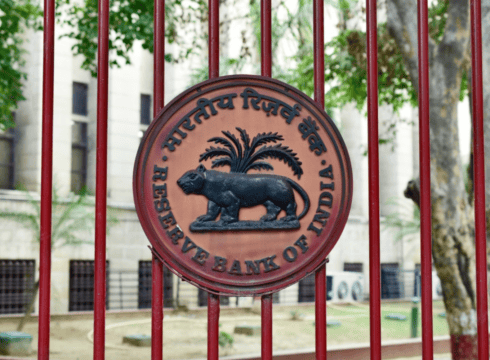RBI, on March 27, 2024, issued a circular to address concerns relating to investment by REs in AIFs
According to the new circular, downstream investments in equity shares are permissible, but not hybrid instruments
Also, investments through Funds of Funds or Mutual Funds are excluded
Inc42 Daily Brief
Stay Ahead With Daily News & Analysis on India’s Tech & Startup Economy
In a relief to banks and non-banking financial companies (NBFCs), the Reserve Bank of India (RBI) relaxed the norms concerning their investments in alternative investment funds (AIFs), following representations received from stakeholders.
This comes after the central bank tightened norms in December last year to address issues related to the potential misuse of funds.
Back then, the RBI asked regulated entities (REs) to not make investments in any alternative investment funds (AIFs) that have invested in a borrower or investee of that lender.
The decision was taken to curb the practice where non-bank financiers were evergreening loans through the AIF route.
New Guidelines Issued By RBI
The latest circular highlighted a few key updates.
First, downstream investments in equity shares are permissible, but not hybrid instruments. For context, investment by an Indian company (which is owned or controlled by foreigners) into another Indian entity is considered a downstream investment.
Next, provisioning norms are ringfenced to the downstream investment, not the full investments by the RE in the AIF.
Also, investments through Funds of Funds or Mutual Funds are excluded.
Where Lies The Glitch?
According to Siddarth Pai, Founding Partner, of 3one4 Capital, & Co-Chair, of the Regulatory Affairs Committee, IVCA, excluding investments through Funds of Funds and mutual funds will increase capital participation in AIFs.
“However, the exclusion of equity shares from the definition of downstream investments works only for investments in listed companies. It fails to account for the private equity and venture capital investments, which are in the form of compulsory convertible instruments such as CCPS and CCDs,” he added.
The industry is debating as to whether they would need to convert all their hybrid secured to equity to allow REs to stay invested in their funds.
Furthermore, there is still ambiguity as to whether existing REs can still honour capital calls to AIFs who do not meet the specific criteria in the new circular.
According to reports, the credit exposure of banks to NBFCs stood at INR 15.2 Lakh Cr in December 2023, indicating a 15.1% year-on-year (y-o-y) growth. Further, there are currently more than 1300+ registered alternative investment funds in the country as of December 2023. If remain unregulated, this poses a significant risk to the economy considering that bad NPAs may lead to a liquidity crisis in the banks, thereby triggering the ripple effect.
{{#name}}{{name}}{{/name}}{{^name}}-{{/name}}
{{#description}}{{description}}...{{/description}}{{^description}}-{{/description}}
Note: We at Inc42 take our ethics very seriously. More information about it can be found here.


